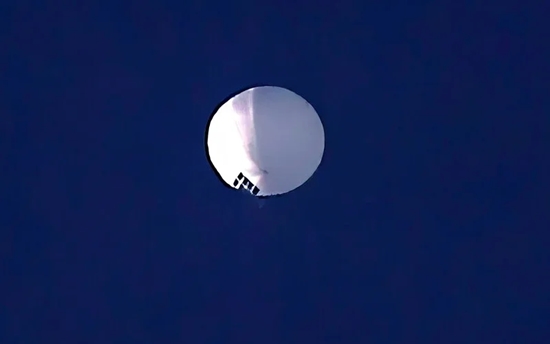
Who knew that the Chinese government would be so festive about Taiwanese democracy? But maybe that’s not the reason for all the new balloons it’s sending over the Strait. According to The New York Times (January 4, 2024):
Taiwan’s Ministry of National Defense has reported occasional sightings of balloons floating from China since last month, and a surge in recent days, according to the ministry’s daily tally of Chinese military activities near the island. Official Taiwanese accounts about balloons were previously very sporadic.
The recent balloons have mostly stayed off Taiwan’s coast. On Monday, however, one flew across the island, according to the ministry’s descriptions of their paths. Of four spotted on Tuesday, three flew over Taiwan, and two passed through to the island’s east side, facing the Pacific Ocean. Another flew over the island on Wednesday.
This presents the Taiwanese defense ministry with the question what to do about the balloons. My free advice: pop them.
Meanwhile, China is hitting Taiwan with new economic penalties to prod voters in the right direction when they cast ballots on January 13. Atlantic Council writers Lev Nachman and Wen-Ti Sung suggest that “Beijing’s latest pre-election attempt to coerce Taiwanese voters could backfire” (January 3, 2024):
Politically motivated economic coercion against Taiwan is, of course, not new…. High-profile examples in the past include a series of tax investigations in 2004 against Taiwanese conglomerate Chi Mei…and its business partners—seemingly because Chi Mei’s founder Shi Wen-long was a major donor to Taiwan’s Democratic Progressive Party (DPP)….
But those and other past instances of apparently politically motivated economic coercion against Taiwanese businesses took place after major Taiwanese elections. Those moves could, then, be interpreted as Beijing trying to make a statement more than trying to shape a particular electoral outcome.
This time is different. The recently announced termination of tariff concessions happened right before Taiwan’s election—and the move seems intended to shape not just the broader political climate, but also to influence specific election outcomes on January 13. Beijing’s explicit economic-electoral linkage vis-à-vis Taiwan is thus entering hitherto unchartered territory.
This economic punishment of Taiwan may backfire, the authors argue, by energizing, not deflating, nationalist sentiment just before the election and so motivating more voters to pick anti-appeasement, DPP candidates. If so, did the Chinese government not realize that this would be the likely effect? Or are they so eager to be seen as “doing something” about Taiwan that “Beijing’s Taiwan policy agencies [are prioritizing] short-term theatrics over long-term interests”?





